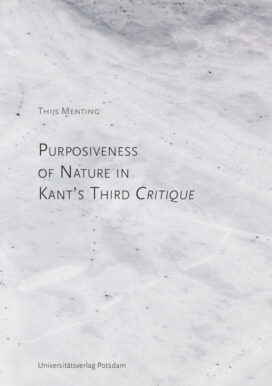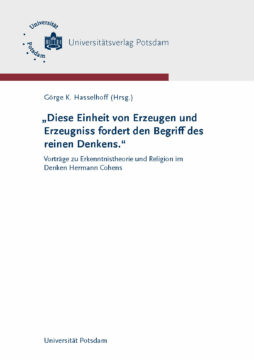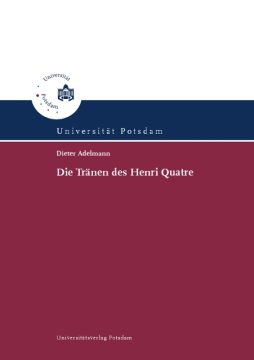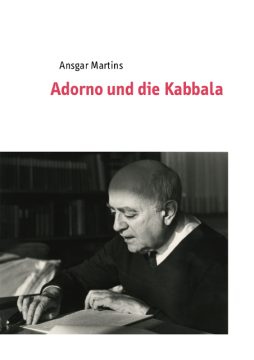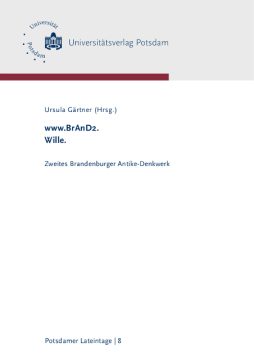This dissertation aims to deliver a transcendental interpretation of Immanuel Kant’s Kritik der Urteilskraft, considering both its coherence with other critical works as well as the internal coherence of the work itself. This interpretation is called transcendental insofar as special emphasis is placed on the newly introduced cognitive power, namely the reflective power of judgement, guided by the a priori principle of purposiveness. In this way the seeming manifold of themes, varying from judgements of taste through culture to teleological judgements about natural purposes, are discussed exclusively in regard of their dependence on this faculty and its transcendental principle. In contrast, in contemporary scholarship the book is often treated as a fragmented work, consisting of different independent parts, while my focus lies on the continuity comprised primarily of the activity of the power of judgement.
Going back to certain central yet silently presupposed concepts, adopted from previous critical works, the main contribution of this study is to integrate the KU within the overarching critical project. More specifically, I have argue how the need for the presupposition by the reflective power of judgement follows from the peculiar character of our sense-dependent discursive mind. Because we are sense-dependent discursive minds, we do not and cannot have immediate insight into all of nature’s features. The particular constitution of our mind rather demands conceptually informed representations which mediately refer to objects.
Having said that, the principle of purposiveness, namely the presupposition that nature is organized in concert with the particular constitution of our mind, is a necessary condition for the possibility of reflection on nature’s empirical features. Reflection refers on my account to a process of selecting features in order to allow a classification, including reflection on the method, means and selection criteria. Rather than directly contributing to cognition, like the categories, reflective judgements thus express our ignorance when it comes to the motivation behind nature’s design, and this is most forcefully expressed by judgements of taste and teleological judgements about organized matter. In this way, reflection, regardless whether it is manifested in concept acquisition, scientific systematization, judgements of taste or judgements about organized matter, relies on a principle of the power of judgement which is revealed and justified in this transcendental inquiry.
ISBN: 978-3-86956-484-5
328 pages
Release year 2020
14,50 €
Non-taxable transaction according to § 1 (1) UStG/VAT Act in combination with § 2 (3) UStG/VAT Act a. F. Providing this service, the University of Potsdam does not constitute a Betrieb gewerblicher Art/Commercial Institution according to § 1 (1) No. 6 or § 4 KStG/Corporate Tax Act. If the legal characterization of our business is changed to a commercial institution subsequently, we reserve the right to invoice VAT additionally. zzgl. Versandkosten
This dissertation aims to deliver a transcendental interpretation of Immanuel Kant’s Kritik der Urteilskraft, considering both its coherence with other critical works as well as the internal coherence of the work itself. This interpretation is called transcendental insofar as special emphasis is placed on the newly introduced cognitive power, namely the reflective power of judgement, guided by the a priori principle of purposiveness. In this way the seeming manifold of themes, varying from judgements of taste through culture to teleological judgements about natural purposes, are discussed exclusively in regard of their dependence on this faculty and its transcendental principle. In contrast, in contemporary scholarship the book is often treated as a fragmented work, consisting of different independent parts, while my focus lies on the continuity comprised primarily of the activity of the power of judgement.
Going back to certain central yet silently presupposed concepts, adopted from previous critical works, the main contribution of this study is to integrate the KU within the overarching critical project. More specifically, I have argue how the need for the presupposition by the reflective power of judgement follows from the peculiar character of our sense-dependent discursive mind. Because we are sense-dependent discursive minds, we do not and cannot have immediate insight into all of nature’s features. The particular constitution of our mind rather demands conceptually informed representations which mediately refer to objects.
Having said that, the principle of purposiveness, namely the presupposition that nature is organized in concert with the particular constitution of our mind, is a necessary condition for the possibility of reflection on nature’s empirical features. Reflection refers on my account to a process of selecting features in order to allow a classification, including reflection on the method, means and selection criteria. Rather than directly contributing to cognition, like the categories, reflective judgements thus express our ignorance when it comes to the motivation behind nature’s design, and this is most forcefully expressed by judgements of taste and teleological judgements about organized matter. In this way, reflection, regardless whether it is manifested in concept acquisition, scientific systematization, judgements of taste or judgements about organized matter, relies on a principle of the power of judgement which is revealed and justified in this transcendental inquiry.
Recommended Books
-
 2020
2020Görge K. Hasselhoff, Dieter Adelmann, Brigitte Falkenburg, Knut Martin Stünkel
„Diese Einheit von Erzeugen und Erzeugnis fordert den Begriff des reinen Denkens.“
11,00 €Non-taxable transaction according to § 1 (1) UStG/VAT Act in combination with § 2 (3) UStG/VAT Act a. F. Providing this service, the University of Potsdam does not constitute a Betrieb gewerblicher Art/Commercial Institution according to § 1 (1) No. 6 or § 4 KStG/Corporate Tax Act. If the legal characterization of our business is changed to a commercial institution subsequently, we reserve the right to invoice VAT additionally.
zzgl. Versandkosten
Add to cart -
 2014
2014Dieter Adelmann, Görge K. Hasselhoff
Die Tränen des Henri Quatre
6,00 €Non-taxable transaction according to § 1 (1) UStG/VAT Act in combination with § 2 (3) UStG/VAT Act a. F. Providing this service, the University of Potsdam does not constitute a Betrieb gewerblicher Art/Commercial Institution according to § 1 (1) No. 6 or § 4 KStG/Corporate Tax Act. If the legal characterization of our business is changed to a commercial institution subsequently, we reserve the right to invoice VAT additionally.
zzgl. Versandkosten
Add to cart -
 2016
2016Adorno und die Kabbala
9,50 €Non-taxable transaction according to § 1 (1) UStG/VAT Act in combination with § 2 (3) UStG/VAT Act a. F. Providing this service, the University of Potsdam does not constitute a Betrieb gewerblicher Art/Commercial Institution according to § 1 (1) No. 6 or § 4 KStG/Corporate Tax Act. If the legal characterization of our business is changed to a commercial institution subsequently, we reserve the right to invoice VAT additionally.
zzgl. Versandkosten
Add to cart -
 2017
2017www.BrAnD2. Wille.
10,00 €Non-taxable transaction according to § 1 (1) UStG/VAT Act in combination with § 2 (3) UStG/VAT Act a. F. Providing this service, the University of Potsdam does not constitute a Betrieb gewerblicher Art/Commercial Institution according to § 1 (1) No. 6 or § 4 KStG/Corporate Tax Act. If the legal characterization of our business is changed to a commercial institution subsequently, we reserve the right to invoice VAT additionally.
zzgl. Versandkosten
Add to cart
Publisher Info
Contact
Potsdam University Library
University Press
Am Neuen Palais 10
14476 Potsdam
Germany
verlag@uni-potsdam.de
0331 977-2094
0331 977-2292

